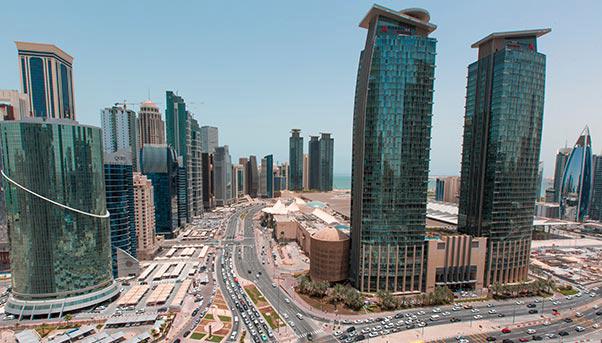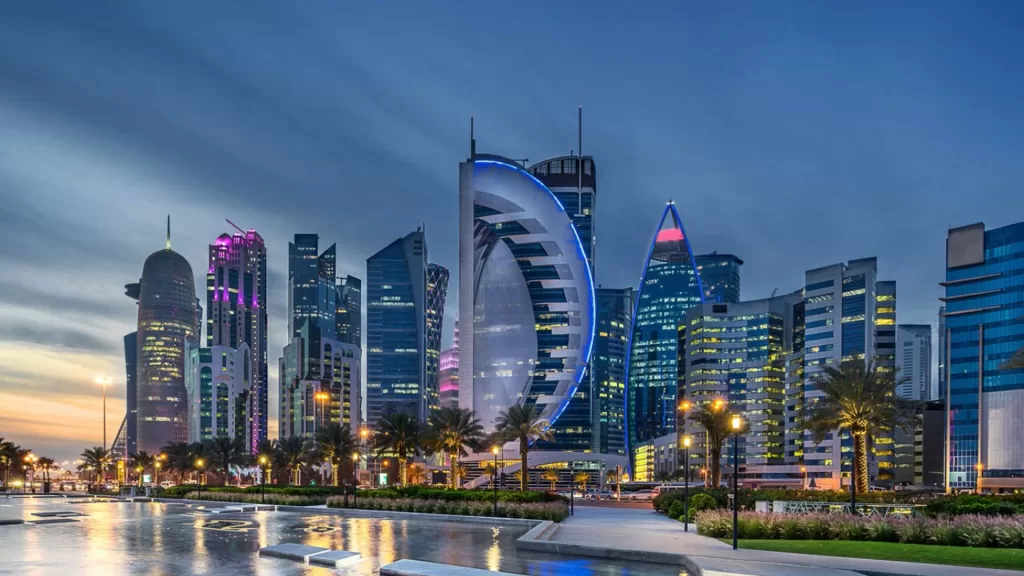Qatar Country Report

Qatar, a small peninsula nation in the Arabian Gulf, is known for its modern skyline, rich cultural heritage, and strategic geopolitical significance. With a population of around 2.8 million, Qatar has experienced rapid economic growth and development, fueled by its vast oil and natural gas reserves, making it one of the wealthiest countries in the world per capita. The country has invested heavily in infrastructure, education, and healthcare, with world-class facilities and services. Qatar’s capital, Doha, serves as a vibrant hub for business, culture, and tourism, hosting major international events such as the FIFA World Cup 2022. The government, led by the Al Thani ruling family, has pursued a proactive foreign policy, engaging in regional diplomacy and mediation efforts while balancing relations with various global powers. However, Qatar faces challenges such as labor rights issues, concerns over freedom of expression, and environmental sustainability. Despite these challenges, Qatar continues to play a prominent role in regional and international affairs, striving for economic diversification, social development, and stability in the face of evolving geopolitical dynamics.
Last updated: September 7, 2023
Security
Qatar maintains a robust security apparatus to safeguard its borders, infrastructure, and population. The country’s security forces are well-trained and equipped to handle a range of threats, including terrorism, cyber attacks, and border security challenges. Qatar collaborates closely with international partners, including the United States and other Gulf Cooperation Council (GCC) countries, to enhance security cooperation and intelligence sharing. Additionally, Qatar has played a significant role in regional security initiatives, such as hosting the Al Udeid Air Base, which serves as a key military installation for the United States and its allies in the region. Despite its generally stable security environment, Qatar remains vigilant against potential risks, particularly in light of regional tensions and geopolitical dynamics in the Middle East.
Last updated: May 12, 2022
Infrastructure

Qatar has invested heavily in infrastructure development to support its growing economy and population. The country boasts modern transportation networks, including extensive road networks, a state-of-the-art airport, and a rapidly expanding public transportation system. Hamad International Airport in Doha serves as a major aviation hub in the region. Qatar’s seaports, such as the Port of Doha and Hamad Port, facilitate trade and commerce, while ongoing projects like the Qatar Rail Network aim to further improve transportation connectivity. Additionally, Qatar has invested in world-class sporting and entertainment facilities, including stadiums and arenas, in preparation for hosting major international events like the FIFA World Cup 2022. The country’s infrastructure development efforts also include investments in healthcare, education, and utilities to enhance the quality of life for residents and promote sustainable development. Overall, Qatar’s infrastructure reflects its ambition to become a global hub for trade, tourism, and innovation.
Last updated: August 11, 2023
Environment

Qatar faces significant environmental challenges, primarily due to its arid climate, rapid urbanization, and reliance on fossil fuels. The country experiences high temperatures and limited rainfall, leading to water scarcity and desertification. Qatar’s rapid urbanization and industrialization have resulted in air and water pollution, impacting public health and ecosystems. Additionally, the extraction and burning of fossil fuels, including oil and natural gas, contribute to greenhouse gas emissions and climate change. Despite these challenges, Qatar has taken steps to address environmental issues, including investments in renewable energy and sustainability initiatives. The country has set ambitious goals to reduce carbon emissions and improve environmental conservation efforts. However, balancing economic growth with environmental sustainability remains a significant challenge for Qatar as it seeks to mitigate the impacts of climate change and preserve its natural resources for future generations.
Last updated: March 22, 2023
Health and Medical
Qatar has made significant advancements in its healthcare system, providing high-quality medical services to its residents. The country boasts modern hospitals, clinics, and healthcare facilities equipped with state-of-the-art technology and staffed by skilled medical professionals from around the world. Qatar’s healthcare system is accessible to all residents, including citizens and expatriates, with healthcare services provided free or at subsidized rates through the government-funded Hamad Medical Corporation (HMC) and private healthcare providers. The country’s healthcare infrastructure includes specialized centers for various medical specialties, including cardiology, oncology, and pediatric care. Additionally, Qatar has implemented digital health initiatives to enhance patient care, such as electronic medical records and telemedicine services. Overall, Qatar’s healthcare system prioritizes preventive care, patient safety, and continuous improvement to ensure the well-being of its population.
Last updated: September 6, 2023
Political
Politically, Qatar is a constitutional monarchy, with the ruling Al Thani family holding significant authority. The country has experienced a period of modernization and liberalization under the leadership of Emir Sheikh Tamim bin Hamad Al Thani, who assumed power in 2013 following his father’s abdication. Qatar’s political system combines traditional monarchical rule with elements of representative democracy. The country has a unicameral advisory council, the Shura Council, whose members are appointed by the Emir, and municipal councils elected by Qatari citizens. While Qatar has made strides towards political reform, including granting women the right to vote and stand for election, challenges such as restrictions on freedom of expression and political dissent remain. Qatar’s foreign policy is characterized by active diplomacy, mediation efforts, and strategic alliances with various regional and international partners. Overall, Qatar’s political landscape is evolving, with ongoing efforts to balance tradition and modernization while navigating regional geopolitics and global challenges.
Last updated: March 28, 2022















